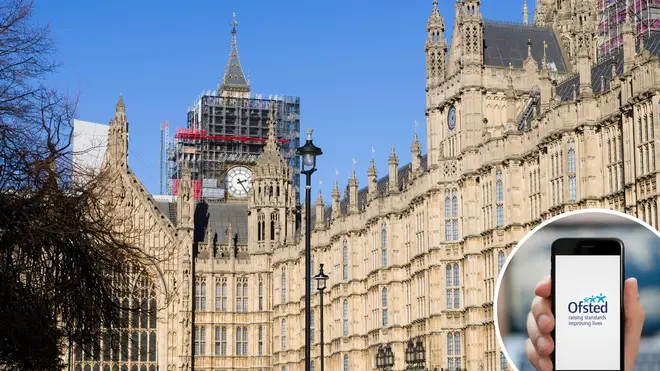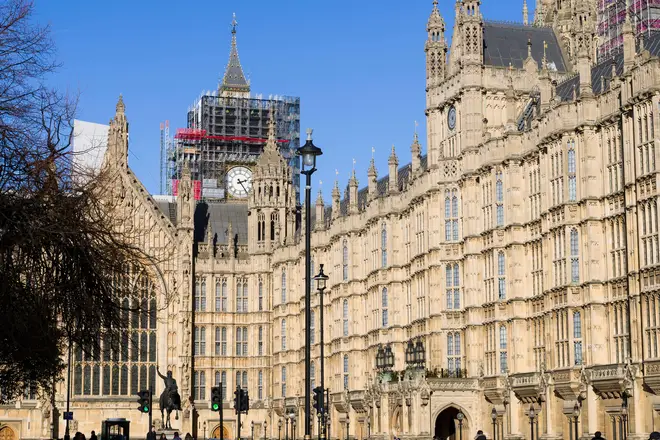
Clive Bull 1am - 4am
8 February 2024, 00:02 | Updated: 8 February 2024, 10:17

Urgent reform is needed to improve accountability and the performance of UK regulators, a House of Lords committee has warned.
The Industry and Regulators Committee has called for a 'fresh approach' to how UK regulators are overseen.
A new report published by the Committee raises "significant concerns" over the role of UK regulators, as well their ability to operate with independence from Government.
There are also concerns over how the regulators are held to account.
There are dozens of regulators in the UK that cover a range of issues, ranging from education (Ofsted, Ofqual) to utilities (Ofgem and Ofwat).
“If the integrity and legitimacy of the UK's regulatory system is to be preserved, the findings and recommendations in our report must be addressed by the Government, regulators and Parliament,” Lord Hollick, Chair of the inquiry said.
The Committee is calling for the creation of an 'Office for Regulatory Performance', which would investigate and report on regulators' performance.
The aim is that the new office would help Parliament in holding regulators to account.

Lord Rose on Quangos
It comes as Lord Stuart Rose, Asda's chairman, railed against quangos and agencies that do government work at a arm's length.
"They've grown, like multi-headed hydras. They're self-regenerating. If you challenge what they do, it's almost impervious.
"It's a bit like dealing with the Covid virus. You can't find a drug to get in there and deal with them, and it's shocking."
And Melanie Dawes, the chief executive of broadcast regulator Ofcom, told LBC's Nick Ferrari at Breakfast previously: "For all organisations that are delivering for the public, and Ofcom is absolutely one of these, you have to be really clear about focusing on those to whom we are accountable.
"Which is ultimately, citizens and consumers of this country and our Parliament, and the industries we regulate through the courts.
"And we're very clear about that, and constantly want to be as transparent as we can be about our work."
The new report found a 'perception' that some leaders of regulatory bodies are in their position based on political loyalty, rather than experience or suitability to the role.
It also raised concerns over the independence of regulatory bodies given the fact that the Government often provides them with the bulk of their funding.
Read More: Labour to ditch £28bn green investment pledge blaming Tories for 'wrecking the economy'
Read More: Hunt claims tax rises needed to fund Labour’s £28bn green spending pledge


Following the report, the Committee has called on the Government to better streamline regulators' duties and provide clearer guidance on what needs to be prioritised.
It has also called for Parliament to have a bigger role in scrutinising appointments to regulator boards or at least comment publicly on why certain appointments have been made.
Lord Hollick said: “Our report raises concerns about the functioning of the three-way relationship between the regulators, the Government, and Parliament, particularly the role and performance of regulators, their independence, and their accountability.
“We are especially concerned at cases where the Government has failed to resolve political or distributional questions facing regulators, and instead interfered in their day-to-day workings.
“Independent regulators must have the confidence to tell the Government and the public about the serious problems facing their sector and be able to set out proposals to meet them with clarity, efficiency and transparency.
“Ministers and Departments responsible for specific regulators should be subject to scrutiny alongside these regulators. We were therefore disappointed by the limited engagement in our inquiry by the Department for Business and Trade, particularly when transparency and accountability to Parliament were a central theme of our work.
“The Department did not provide the Committee with oral ministerial representation, despite ample notice, and its written submission was brief and lacked detail.
“If the integrity and legitimacy of the UK’s regulatory system is to be preserved, the findings and recommendations in our report must be addressed by the Government, regulators and Parliament.”